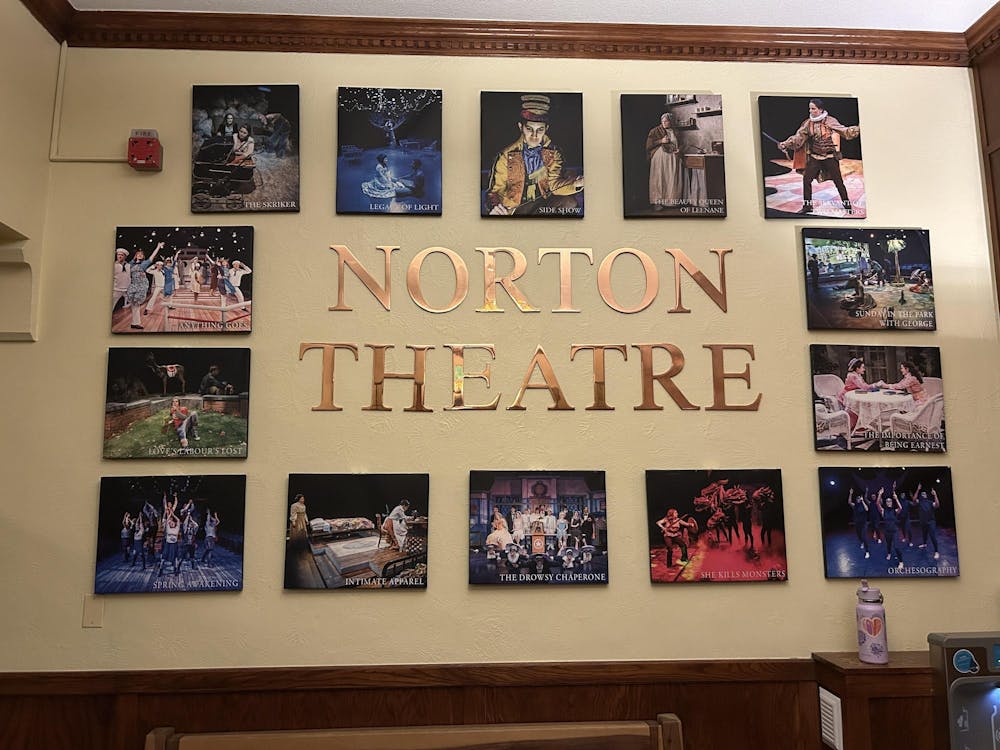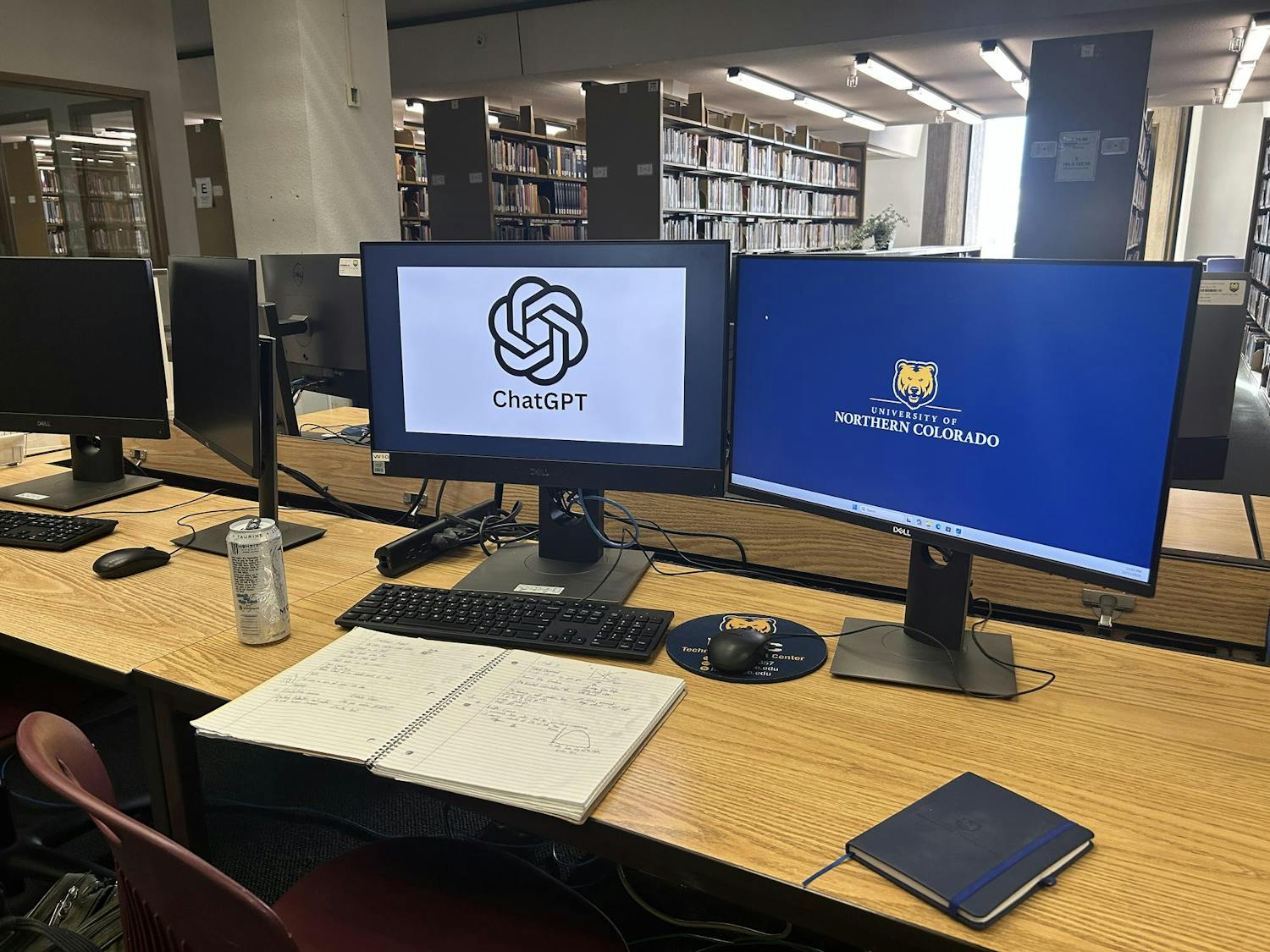Shelly Gaza’s love of theater began when she was in the sixth grade in a production of “Charlotte’s Web.” Gaza played the Little Lamb, complete with a full costume and mask. The play itself was a lot of fun for young Gaza, but her director, Marilyn Heberling, is really who ignited her love for the arts. Heberling made Gaza feel included, like an important piece in a grander work, no matter how small her role might have been.
“When you feel the importance of your one small piece in this bigger thing, I think we create adults that are really engaged citizens,” Gaza said. “I think it’s a really important thing for a young person to experience.”

Today, Gaza is a professor of acting in UNC’s School of Theatre Arts and Dance. She brings her love for theater, and its ability to make everyone feel important, to class every day. One of the classes Gaza teaches is Acting Styles II, which focuses on Shakespeare and Ancient Greek. One week, the students begin work on Shakespeare scenes selected for them.
Gaza prepares for the unit by carefully choosing scenes for the students based on their skill sets, personalities and identities, and grouping them together based on how they could work together and how they could learn from each other.
“I might know that these two students have never gotten to work on a scene together,” Gaza said. “For whatever reason, they’ve been in school for four years, but they’ve never gotten to be in a scene together, so I might pair them together just to give them an opportunity to work with somebody different this semester.”
Once the groups are chosen, work begins on making the scenes the best they can be. On a chilly October day, the first group acts out their scene from “As You Like It.” The two actors make their way across the well-worn floor of the classroom in Gray Hall, telling the class that a supporting pillar is a tree and a small black crate is a rock. The characters, Rosalind and Celia, read a love song, written for Rosalind by Orlando, the man Rosalind pines for. Celia knows who wrote it, but Rosalind does not.
The stage is set. The scene begins.
Even on the first runthrough, the scene is full of energy, the scripts in hand barely noticeable. These are experienced actors, capable of executing a scene without outside direction. Gaza stands at the back of the classroom watching, smiling like a proud parent. When the scene ends, Gaza approaches the actors with notes.

“Let’s find the balance between ‘These are terrible love songs, but they are about me,’” Gaza says.
Gaza glides across the makeshift stage comfortably, offering advice and blocking suggestions without interfering with the artists’ creativity. They run through the scene again with Gaza’s words in mind, and the performance soars. While the notes seem minor, the performances feel entirely different. No longer just filled with whimsical joy, the actors now embody a touch of secondhand embarrassment while reading Orlando’s shoddy work.
The scene stops again. This time, Gaza advises that they should play up the fact that Rosalind doesn’t know that Orlando wrote the song until Celia reveals it. The actors go again, playing up the hilarity of the situation and Celia’s teasing knowledge. The parts are there, but the timing isn’t quite right.
“See what happens if you just take the air out of it and… yeah,” Gaza says.
The comedic timing is near perfect now, as the actors pick the right times to pause and the right words to emphasize. Gaza watches from the side, pleased with the progress they’ve made in only 20 minutes. She laughs out loud at the particularly standout execution of a physical gag, in all its Shakespearean charm.
“That’s great,” Gaza says. “That energy is all great.”
The adjustments seemed miniscule at first, but after watching the process, one can see the immense difference Gaza’s suggestions made in polishing the piece. Her instructions and the actors’ ability to make changes on a whim work in tandem to refine the scene to be the best it can be.
“It’s very fun in the beginning when you’re getting Shelly’s ideas and you’re having ideas of your own and you’re bouncing off of your scene partner,” said Jessica Riley, who plays Rosalind. “It’s very, like, spur of the moment and ideas are kind of, like, bouncing around like tennis.”
Gaza thanks the actors for their work and welcomes the next group to the floor.
The next and final scene of the day comes from “King Lear,” following an argument between Goneril and her husband, the Duke of Albany, regarding her mistreatment of her father, Lear, and the arrival of news that Gloucester has lost both of his eyes and that the Duke of Cornwall is dead. It’s an intense and dramatic scene requiring entirely different direction than the comedic scene from “As You Like It.”
The stage is set. The scene begins.
The actors perform, full of tension and shouting, while also bringing forth subtler moments, like one in which the Duke and a servant continue a silent conversation while Goneril talks to herself. The other students watch the scene unfold. Gaza takes in the performance intently, scanning for elements that can be tuned. When the scene ends, she crosses the floor.
“The trick with this scene is to find the build to it,” Gaza says.
Gaza reminds the actors of their characters’ various backgrounds, bringing attention to the reasons for their emotions and actions within the scene. The actors begin again, from the top. This time, it starts slower and quieter. It’s a gradual climb to a crescendo rather than a sprint to it. The actors play off of each other effortlessly, increasing the tension without sacrificing clarity or enunciation. The dialogue is there. Now, Gaza provides advice on blocking the scene, advising that they utilize the whole stage. The scene resumes with greater dynamism, as the actors physically embody the heightened tension of the scene.
Gaza continues to coach as the scene progresses, illustrating her advice with her own body, striding across the stage and emphasizing specific points for more meaningful emotion. The actors take these suggestions, and conclude the scene, now more refined than it was at the start of class.
“I always find it useful not to overthink it,” said Nolan Bond, who plays the Duke of Albany, on receiving notes on a performance. “As soon as you start overthinking it, which I am very apt to do, you tend to either underperform or overperform.”
The work isn’t over, but the scenes have already improved so much in only 50 minutes. The actors will continue to work on their scenes outside of class, preparing for the performance of their completed scenes the following week. Gaza ends class right on time and students enthusiastically line up to ask questions. As the classroom empties, Gaza prepares to continue her work.
The stage is set. The scene begins.







